Dealing with Dark Spots on Quartz Countertops
Quartz countertops have gained immense popularity in recent years due to their durability, low maintenance, and aesthetic appeal. However, despite their resilience, quartz countertops may develop dark spots over time, which can be concerning for homeowners. In this guide, we’ll discuss the causes of dark spots on quartz countertops, explore potential solutions for removing and preventing them, discuss professional restoration options, and offer tips for maintaining the beauty of your quartz surfaces.
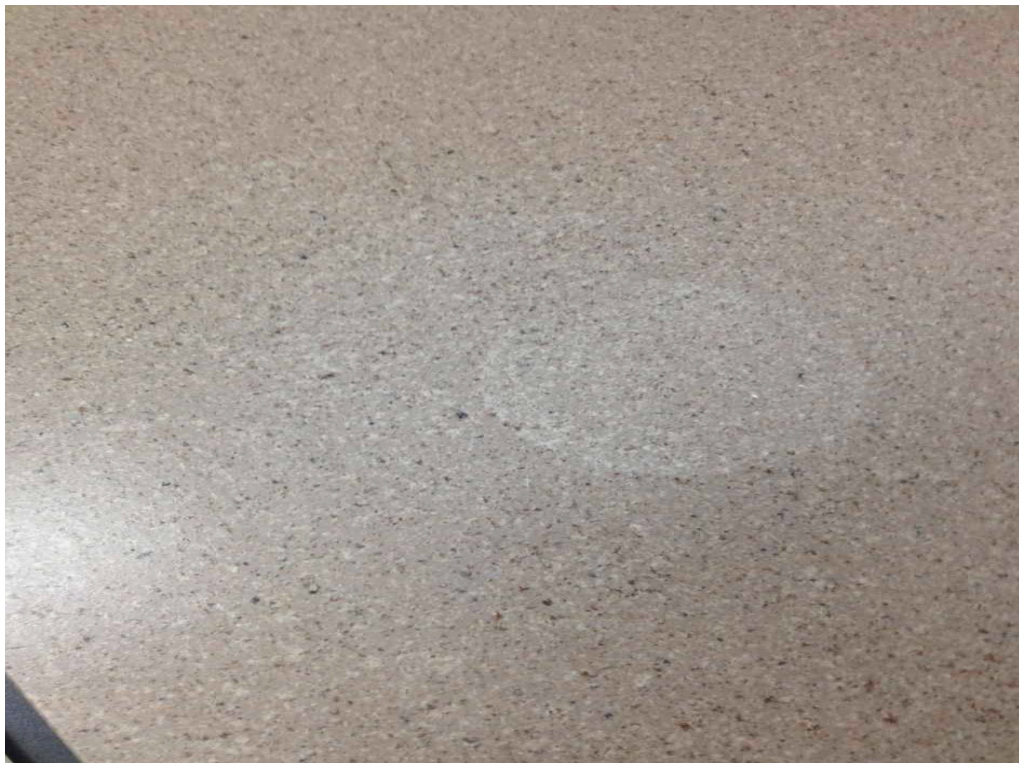
Understanding the Causes of Dark Spots
Dark spots on quartz countertops can result from various factors, including:
Stains: Spills of highly pigmented substances such as coffee, tea, wine, or food dyes can penetrate the surface of the quartz and leave behind dark stains. These stains may be more noticeable on lighter-colored quartz countertops but can occur in any color.
Residue Buildup: Improper cleaning methods or using harsh cleaners containing abrasive or acidic ingredients can lead to residue buildup on quartz countertops. Over time, this residue can create dark spots or discoloration, detracting from the countertop’s appearance.
Heat Damage: While quartz countertops are heat-resistant, extreme heat from hot pots, pans, or cooking appliances placed directly on the surface can cause thermal shock, leading to dark spots or discoloration in localized areas.
Manufacturing Defects: In rare cases, dark spots may result from manufacturing defects or inconsistencies in the quartz slab, such as uneven pigmentation or impurities within the material. These defects may become more apparent over time as the countertop ages.
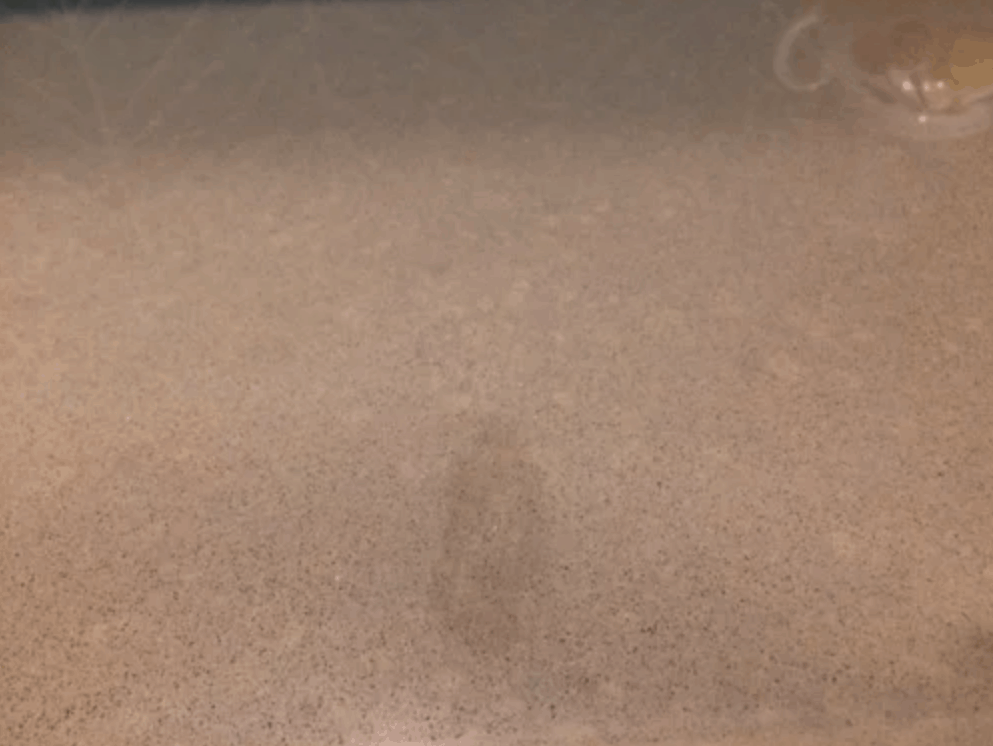
Methods for Removing and Preventing Dark Spots
To address dark spots on quartz countertops and prevent them from recurring, consider the following methods:
Gentle Cleaning: Start by gently cleaning the affected areas with a soft cloth or sponge and a mild detergent or non-abrasive cleaner. Avoid using harsh chemicals, abrasive scrubbers, or scouring pads, as these can damage the quartz surface and exacerbate the problem.
Stain Removal Solutions: For stubborn stains, you can try using specialized quartz countertop cleaners or stain removal solutions specifically formulated for quartz surfaces. Follow the manufacturer’s instructions carefully and test the solution on a small, inconspicuous area first to ensure compatibility.
Heat Protection: To prevent heat-related dark spots, always use trivets, hot pads, or heat-resistant mats under hot cookware or appliances to create a protective barrier between the countertop surface and the heat source. Avoid placing hot items directly on the quartz surface to minimize the risk of thermal shock.
Regular Maintenance: Establish a routine maintenance schedule for your quartz countertops, including daily wiping with a damp cloth or sponge and weekly cleaning with a mild detergent. Promptly clean up spills and stains to prevent them from setting and becoming more difficult to remove over time.
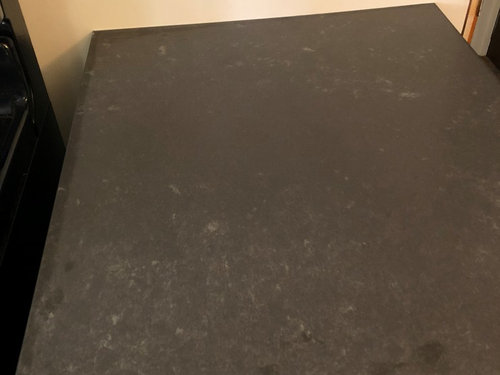
Professional Restoration Options
If DIY methods fail to remove dark spots from your quartz countertops or if the damage is extensive, consider seeking professional restoration services. Professional stone restoration companies specialize in repairing and restoring quartz and other natural stone surfaces. They have access to specialized tools, techniques, and cleaning solutions designed to address specific types of damage and restore the beauty of your countertops.
Tips for Maintaining Quartz Countertops
To maintain the beauty and longevity of your quartz countertops and minimize the risk of dark spots, consider the following tips:
Use Cutting Boards and Trivets: Always use cutting boards for chopping and trivets or hot pads for placing hot cookware to protect the quartz surface from scratches and heat damage.
Avoid Abrasive Cleaners: Steer clear of abrasive cleaners, scouring pads, or harsh chemicals that can scratch or dull the quartz surface. Stick to mild detergents and non-abrasive cleaners for regular cleaning and maintenance.
Regular Sealing: Unlike natural stone countertops, quartz countertops are non-porous and do not require sealing. However, periodic sealing may be recommended for certain types of quartz to enhance stain resistance and protect against dark spots.
Prompt Maintenance: Address any spills, stains, or damage promptly to prevent them from worsening and becoming more challenging to remove. Prompt cleaning and maintenance can help preserve the appearance and integrity of your quartz countertops over time.
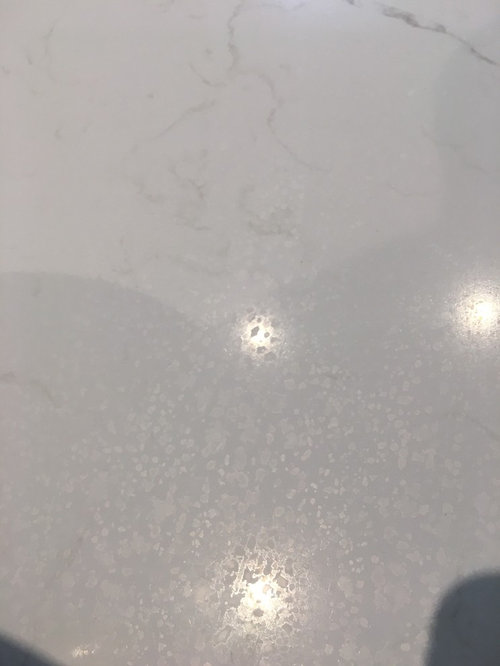
Common Mistakes to Avoid
When dealing with dark spots on quartz countertops, avoid the following common mistakes:
Using Harsh Cleaners: Avoid using harsh cleaners containing abrasive or acidic ingredients on quartz countertops, as they can damage the surface and lead to dark spots or discoloration.
Neglecting to Use Heat Protection: Always use trivets, hot pads, or heat-resistant mats under hot cookware or appliances to prevent thermal shock and heat-related dark spots on quartz countertops.
Ignoring Manufacturer Guidelines: Follow the manufacturer’s guidelines and recommendations for cleaning, maintenance, and stain removal to ensure the best results and prevent damage to your quartz countertops.
Delaying Maintenance: Don’t postpone regular cleaning and maintenance of your quartz countertops, as this can allow stains, spills, and residue buildup to accumulate and become more challenging to remove.
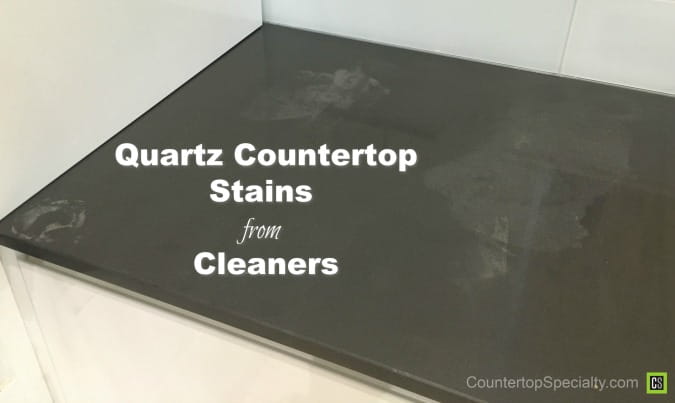
What causes dark spots to appear on quartz countertops?
Dark spots on quartz countertops can result from various factors, including stains from highly pigmented substances like coffee, tea, or wine, residue buildup from improper cleaning methods, heat damage from hot pots or pans, and even manufacturing defects such as uneven pigmentation or impurities within the quartz material. Understanding the underlying cause of the dark spots is crucial for determining the appropriate treatment and prevention methods.
How can I remove dark spots from my quartz countertops?
To remove dark spots from quartz countertops, start by gently cleaning the affected areas with a soft cloth or sponge and a mild detergent. For stubborn stains, you can use specialized quartz countertop cleaners or stain removal solutions. It’s essential to avoid using abrasive cleaners or scrubbers that can damage the quartz surface. If DIY methods fail, consider seeking professional restoration services to restore the beauty of your quartz countertops.
Can dark spots on quartz countertops be prevented?
While it’s challenging to prevent dark spots on quartz countertops entirely, you can take several measures to minimize the risk. These include using cutting boards and trivets to protect the surface from scratches and heat damage, avoiding abrasive cleaners or harsh chemicals, promptly cleaning up spills and stains, and following proper maintenance guidelines recommended by the manufacturer. Additionally, regular sealing may be recommended for certain types of quartz to enhance stain resistance and protect against dark spots.
Are professional restoration services necessary for removing dark spots from quartz countertops?
In some cases, professional restoration services may be necessary for removing stubborn dark spots from quartz countertops, especially if DIY methods fail or if the damage is extensive. Professional stone restoration companies have the expertise, tools, and cleaning solutions required to address specific types of damage and restore the beauty of quartz countertops. They can assess the severity of the dark spots and recommend the best course of action for restoring your countertops to their original condition.
How can I maintain the beauty of my quartz countertops and prevent dark spots from occurring?
To maintain the beauty of your quartz countertops and prevent dark spots from occurring, follow these maintenance tips: Use cutting boards and trivets to protect the surface from scratches and heat damage, avoid abrasive cleaners or harsh chemicals, promptly clean up spills and stains, and follow proper maintenance guidelines recommended by the manufacturer. Additionally, regular sealing may be recommended for certain types of quartz to enhance stain resistance and protect against dark spots. By practicing regular cleaning and maintenance, you can keep your quartz countertops looking beautiful and free from dark spots for a long time.
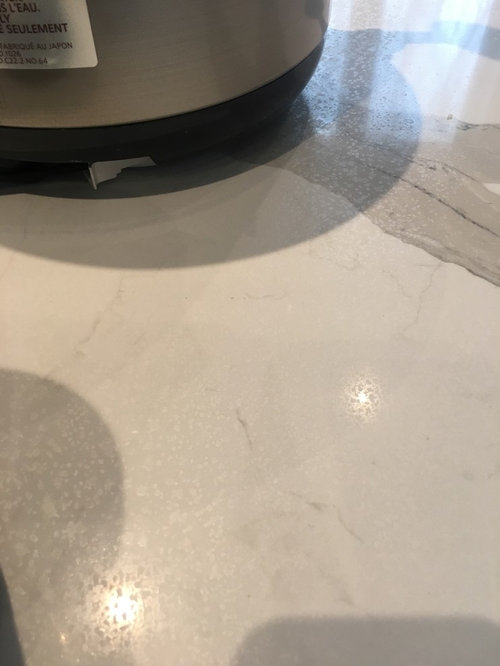
weird blemishes and cloudy areas on quartz countertop
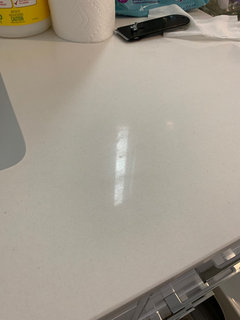
Dull/Cloudy Spots on New Quartz Counter tops
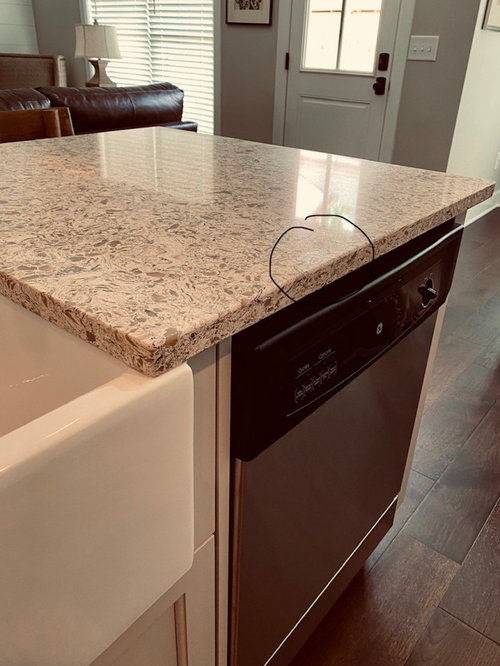
How Do I Get This Stain Off My Quartz Countertop?
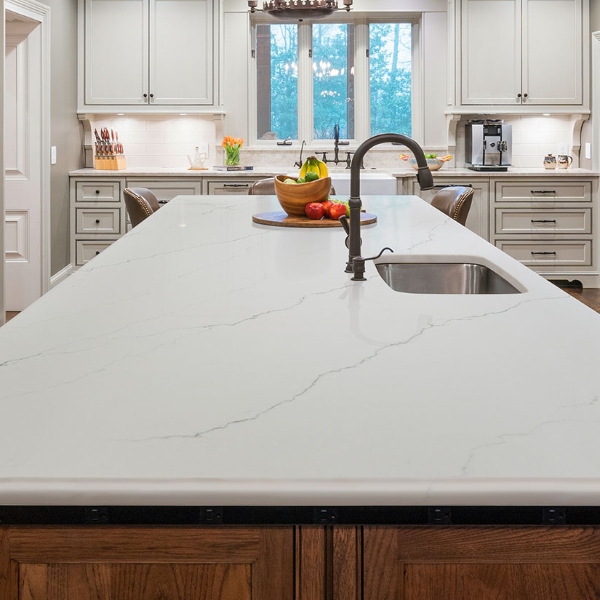
new quartz tiny black spot
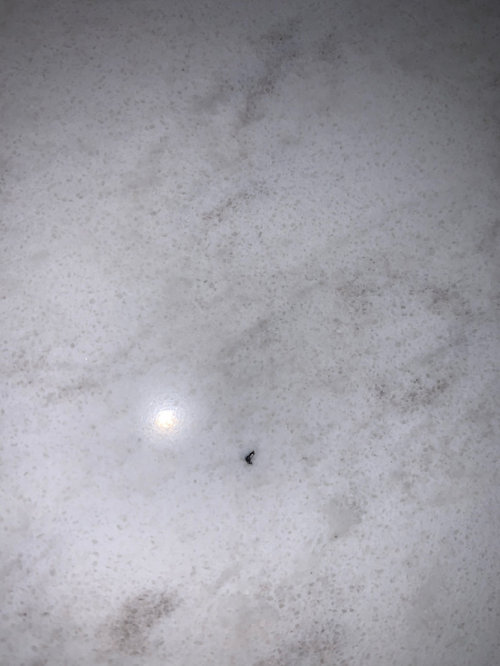
Related articles: